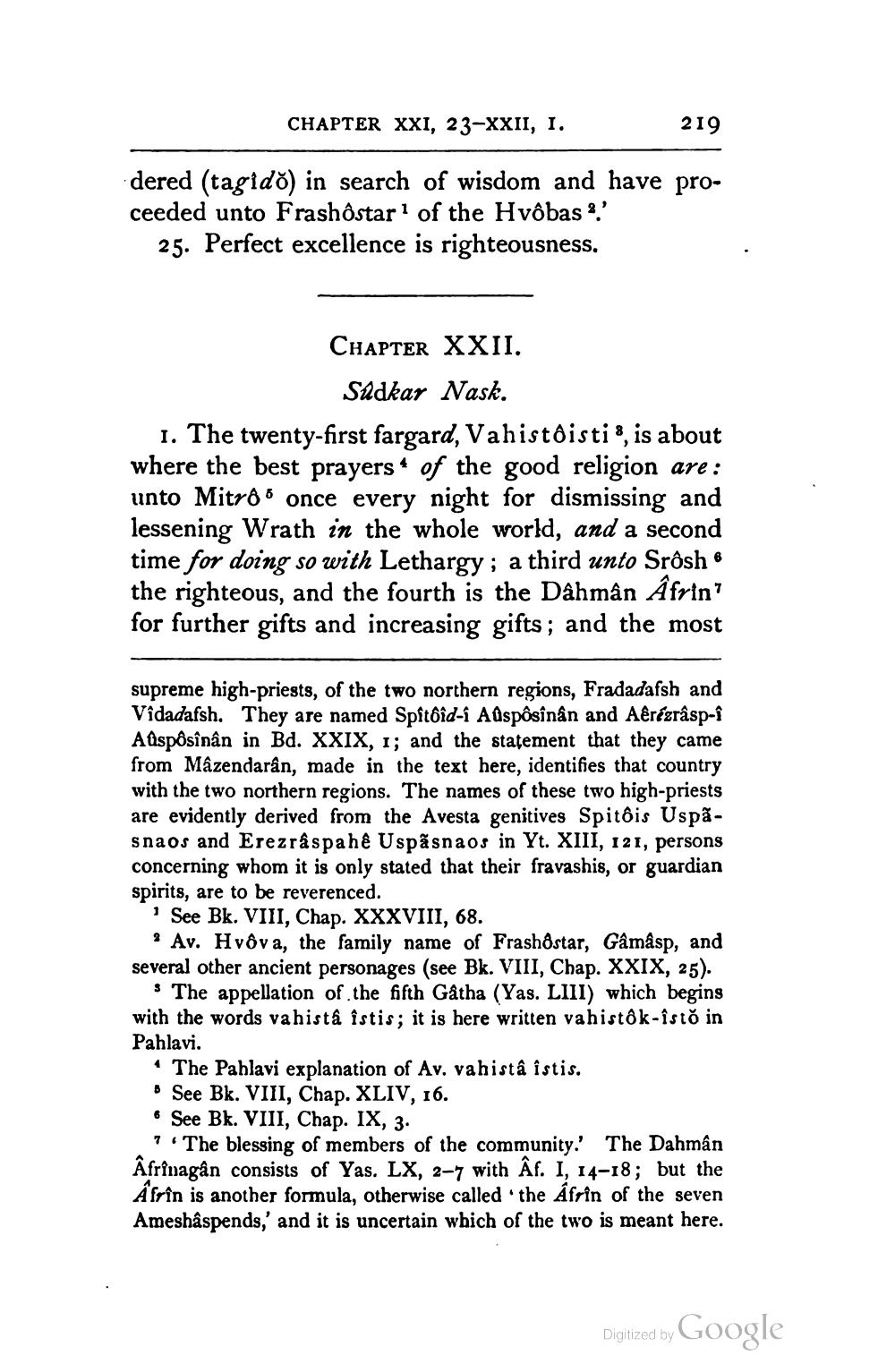________________
CHAPTER XXI, 23-XXII, I.
dered (tagido) in search of wisdom and have proceeded unto Frashôstar1 of the Hvôbas ".'
25. Perfect excellence is righteousness.
CHAPTER XXII. Südkar Nask.
219
4
1. The twenty-first fargard, Vahistôisti, is about where the best prayers of the good religion are: unto Mitrô once every night for dismissing and lessening Wrath in the whole world, and a second time for doing so with Lethargy; a third unto Srôsh the righteous, and the fourth is the Dâhmân Afrin' for further gifts and increasing gifts; and the most
supreme high-priests, of the two northern regions, Fradadafsh and Vîdadafsh. They are named Spîtôîd-î Aûspôsînân and Aêrézrâsp-î Aûspôsînân in Bd. XXIX, 1; and the statement that they came from Mâzendarân, made in the text here, identifies that country with the two northern regions. The names of these two high-priests are evidently derived from the Avesta genitives Spitôis Uspãsnaos and Erezrâspahê Uspãsnaos in Yt. XIII, 121, persons concerning whom it is only stated that their fravashis, or guardian spirits, are to be reverenced.
1 See Bk. VIII, Chap. XXXVIII, 68.
2 Av. Hvôva, the family name of Frashôstar, Gâmâsp, and several other ancient personages (see Bk. VIII, Chap. XXIX, 25).
The appellation of the fifth Gâtha (Yas. LIII) which begins with the words vahistâ îstis; it is here written vahistôk-îsto in Pahlavi.
The Pahlavi explanation of Av. vahistâ îstis.
See Bk. VIII, Chap. XLIV, 16.
See Bk. VIII, Chap. IX, 3.
7 'The blessing of members of the community.' The Dahmân Afrinagân consists of Yas. LX, 2-7 with Âf. I, 14-18; but the Afrin is another formula, otherwise called 'the Afrin of the seven Ameshâspends,' and it is uncertain which of the two is meant here.
Digitized by
Google




